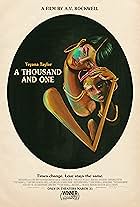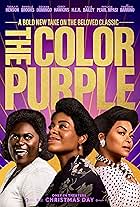Apparently, one of the (main?) drivers of the French Revolution was racial equity. Who knew? This is a new Hollywood trend: you transpose current (broadly accepted) societal views into different geographies, cultures and historical periods, basically to prove that they always were eternal. Women Talking, The Woman King are two recent examples of this trend. Art has always been used to convey the ideas of its time, and there's really nothing wrong with it. Except when you pretend that what you're depicting is historically accurate, in which case it becomes revisionism or cultural imperialism. As a violinist and a person who lived in Paris for four years, the cultural imperialism in this film may upset me a bit more than most. But I could actually go with it if the movie were good. But it's not.
The story is actually amazing. Imagine: a black violinist and composer in 18th century France. A man of color who was a contender to become head of the Paris Opera under Louis XVI, and who then became a leader in the French Revolution. One can only dream of what this film could have been in the hands of Spike Lee, Jordan Peele or even better Ladj Ly. It could (should) have been an exploration of the character, his motivations, what it was like to be a person of color in the court of Louis XVI, how he truly embraced revolutionary values and how they reflected on his own condition. What do we get instead from Stephen Williams? An attempt to remake Amadeus with a black character. The plagiarism is so overt that many times you feel as if you were watching segments of Amadeus again, with a few dashes of Kubrick's Barry Lindon here and there. Except that Williams is no Milos Forman and no Stanley Kubrick. His film, weighed down by its narrow program of easy answers we all knew before going into the theatre, is dull and empty, and the characters, without the freedom to exist in their own right, increasingly feel like figures at a wax museum.
One can only hope that a real filmmaker will retake this story and turn it into the film of relevance that it should be.









































